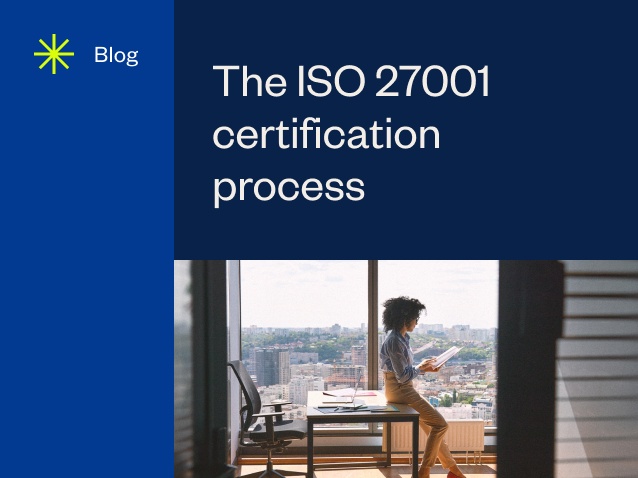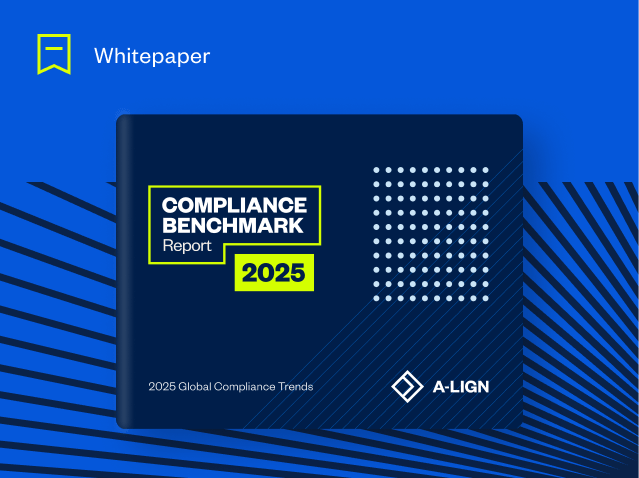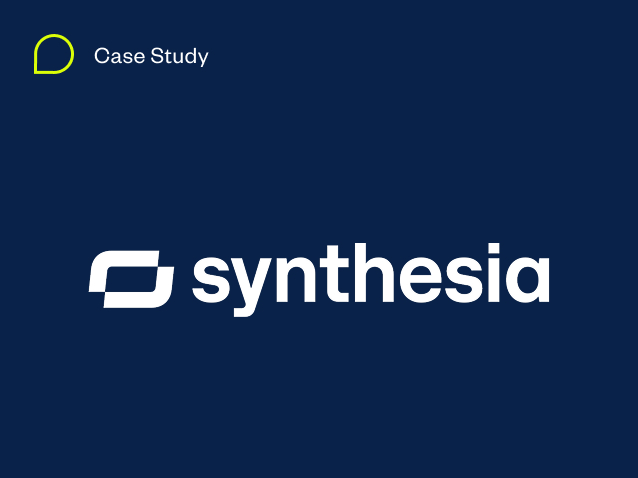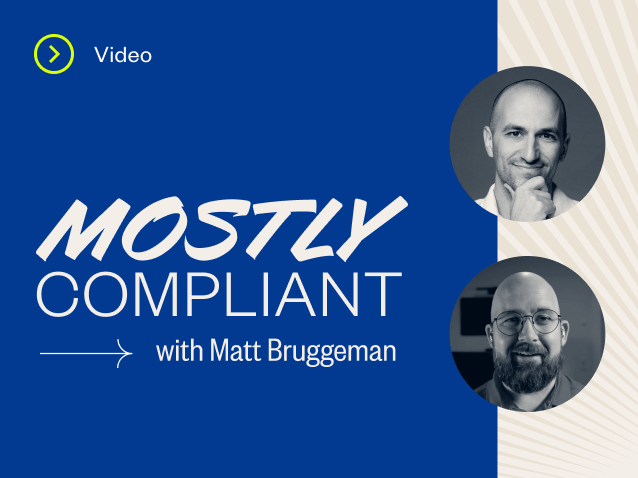Explaining the ISO 27001 Certification Process

In cybersecurity and compliance, one certification stands out as the gold standard for information security management: ISO/IEC 27001. Achieving ISO 27001 certification demonstrates a company’s commitment to protecting its information assets and mitigating cyber risks. But what exactly is the ISO 27001 process, and how can your organization seamlessly attain this certification? Let’s delve into the steps of the ISO 27001 process.
Understanding the ISO 27001 process
The ISO 27001 process is a systematic approach to establishing, implementing, maintaining, and continuously improving an Information Security Management System (ISMS) within an organization. It involves a series of steps that are carefully crafted to ensure the confidentiality, integrity, and availability of information assets. Here’s a breakdown of the key stages of the ISO 27001 process:
1. Initiation and planning
The journey towards ISO 27001 certification begins with a clear understanding of your organization’s context, scope, and objectives. During this phase, management’s commitment to information security is crucial, as it sets the tone for the entire process. Planning involves defining the ISMS scope, conducting a risk assessment, and establishing information security policies and objectives.
2. Selecting a vendor
Once your organization decides to pursue ISO 27001 certification, it must select a certification body to help navigate the audit process.
It’s important to look for an accredited certification body. To become accredited, organizations must undergo a rigorous evaluation process to ensure that the certification audit is performed in accordance with the ISO 27006 and ISO 17021 requirements. The evaluation process assesses the competence of the audit team, the audit methodology, and the quality control procedures in place to ensure that the audit and report are completed properly.
There are different accreditation bodies available for ISO and their processes and market acceptance may vary. For example, in the U.S. the ANSI National Accreditation Board (ANAB) is the gold standard, while in the UK and parts of Europe, there’s a strong preference towards the United Kingdom Accreditation Service (UKAS). A-LIGN is accredited by both UKAS and ANAB, making it well-positioned to support organizations with U.S. or international compliance requirements.
3. Pre-assessment
The ISO 27001 pre-assessment process is designed for companies that will undergo the certification process for the first time and is only performed on an as-needed basis. Certification bodies will simulate the actual certification audit by performing a review of your company’s entire management system including scope, policies, procedures, and processes to review any gaps that may exist and should be evaluated prior to undergoing the certification process.
The pre-assessment phase can give your organization a head-start on the certification process by revealing any oversights or potential weaknesses that your organization may have ahead of the actual audit so that you can act on areas that require remediation or attention.
4. Stage 1 audit
First, an auditor reviews an organization’s documentation to confirm it is following ISO 27001 requirements. The Stage 1 audit also checks to see if the required activities of the standard have either been completed or are scheduled for completion prior to starting Stage 2.
At the end of Stage 1, the auditor will determine if your company is ready to move forward to Stage 2, or if there are any areas of concern regarding the company’s policies, procedures, and supporting documentation before proceeding. In rare cases where significant areas of concern are noted, you may be required to complete a second Stage 1 audit before moving on to Stage 2.
5. Stage two audit
The Stage 2 audit is performed to test the conformance of the system with the ISO 27001standard. During this stage, the certification body will perform testing procedures including interviews, an inspection of documented evidence, and an observation of processes. Every audit is different in duration, and the time to completion is determined by several factors.
Upon completion of Stage 2, the certification body will determine if your organization is ready to be certified. If there are any major nonconformities, they will need to be remediated before a certificate can be issued. At this point, an organization is issued a certificate valid for three years, contingent on the continued successful completion of surveillance audits.
6. Surveillance audit
Obtaining ISO 27001 certification is not the end of the journey; it marks the beginning of a commitment to maintaining and improving information security practices. Surveillence audits are conducted annually to ensure ongoing compliance with the standard’s requirements.
For the next two years, annual surveillance audits are required to ensure ongoing conformity with the ISO 27001 standard. These audits provide assurance that your systems and processes remain compliant over time. Surveillance audits are shorter in time and scope than the initial Stage 2 audit and test a sampled set of controls. Typically, this process should take a few months to complete each year.
5. Recertification
Your ISO 27001 certificate is valid for three years after the issue date as long as the surveillance requirements are met. However, your organization will need to recertify before the expiration date, which will then restart the three-year certification process.
The recertification process differs from the initial certification, as organizations do not typically need to go through the Stage 1 audit again. Organizations begin recertification with a full system audit, which is similar to a Stage 2 audit. Upon completion of recertification, organizations will undergo further surveillance audits.
The benefits of ISO 27001 certification
Embracing the ISO 27001 process and obtaining certification bring a multitude of benefits to organizations, including:
- Enhanced security posture: By identifying and mitigating information security risks, organizations bolster their defenses against cyber threats.
- Improved customer trust: ISO 27001 certification demonstrates a company’s dedication to safeguarding sensitive information, earning trust from customers and stakeholders.
- Legal and regulatory compliance: Compliance with ISO 27001 helps organizations meet legal and regulatory requirements related to information security.
- Competitive advantage: Certification differentiates organizations in the marketplace, giving them a competitive edge over non-certified competitors.
Partnering with A-LIGN for ISO 27001
Navigating the complex landscape of ISO 27001 certification can be daunting, but with the right partner by your side, the journey can be efficient and seamless. A-LIGN, a trusted global leader in compliance and cybersecurity solutions, offers comprehensive services to support organizations in achieving ISO 27001 certification.
With A-LIGN’s expert guidance, cutting-edge technology, and commitment to quality, companies can embark on their ISO 27001 journey with confidence. From initial assessment to certification audit and beyond, A-LIGN caters to diverse compliance needs, ensuring a smooth and successful certification process.
The ISO 27001 process is not just a certification but a commitment to excellence in information security. By following a structured approach, leveraging expert guidance, and embracing a culture of continuous improvement, organizations can elevate their cybersecurity posture and build a foundation of trust and reliability in today’s digital world.
Are you ready to embark on your ISO 27001 journey? Partner with A-LIGN – contact us today to take the first step towards cybersecurity excellence.





